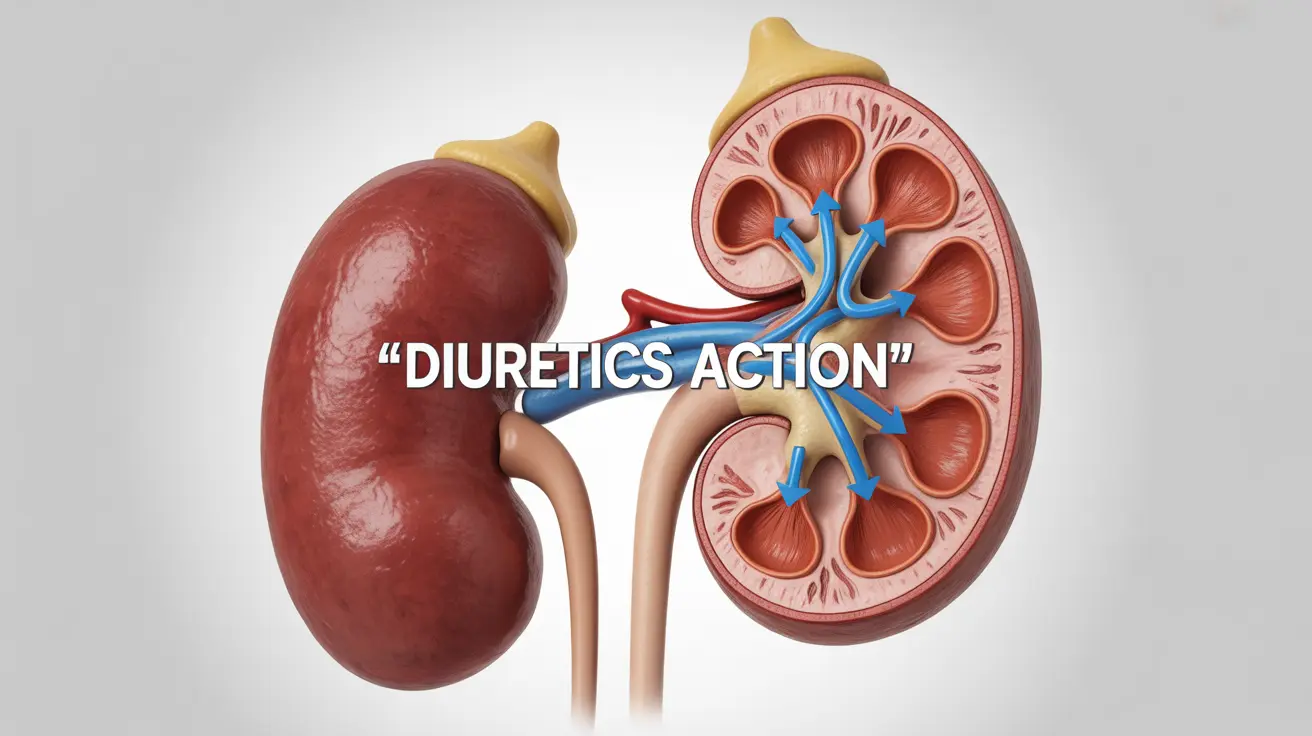Diuretics, often called "water pills," are medications that help your body eliminate excess fluid and salt through increased urine production. These important medications play a crucial role in treating various medical conditions, from high blood pressure to heart failure. Understanding how diuretics work and their proper use is essential for anyone prescribed these medications.
How Diuretics Work in Your Body
Diuretics work by targeting different parts of your kidneys to increase fluid elimination. They help reduce the amount of water and salt your body retains, which can lower blood pressure and ease the burden on your heart. This process occurs through various mechanisms depending on the type of diuretic prescribed.
Main Types of Diuretics
Thiazide Diuretics
Thiazide diuretics, such as hydrochlorothiazide, are often prescribed as a first-line treatment for high blood pressure. They work by reducing sodium and water reabsorption in your kidneys, leading to increased urine output and lower blood pressure.
Loop Diuretics
Loop diuretics like furosemide (Lasix) are powerful medications that act on the loop of Henle in your kidneys. They're particularly effective for treating severe fluid retention and are commonly used in heart failure treatment.
Potassium-Sparing Diuretics
These medications, including spironolactone, help maintain potassium levels while removing excess fluid. They're often prescribed alongside other diuretics to prevent potassium depletion.
Medical Uses and Benefits
Diuretics serve multiple therapeutic purposes in modern medicine. They're primarily used to treat:
- High blood pressure
- Heart failure
- Edema (fluid retention)
- Liver cirrhosis
- Kidney disorders
Natural Diuretics and Alternatives
Several natural substances can have mild diuretic effects, though they're generally less potent than prescription medications. Common natural diuretics include:
- Dandelion
- Parsley
- Green tea
- Caffeine
- Hibiscus
Managing Side Effects and Safety
While diuretics are generally safe when properly prescribed, they can cause various side effects that require monitoring. Regular medical check-ups and blood tests help ensure safe long-term use and proper dosing adjustments.
Frequently Asked Questions
What are the different types of diuretics and how do they work to reduce fluid in the body?
There are three main types of diuretics: thiazides, loop diuretics, and potassium-sparing diuretics. Each type works on different parts of the kidneys to increase urine production and reduce fluid retention. Thiazides work in the distal tubule, loop diuretics act on the loop of Henle, and potassium-sparing diuretics target the collecting ducts.
What side effects should I watch for when taking diuretics like hydrochlorothiazide or furosemide?
Common side effects include increased urination, dehydration, electrolyte imbalances, dizziness, and muscle cramps. Monitor for excessive thirst, severe fatigue, irregular heartbeat, and muscle weakness. Contact your healthcare provider if these symptoms become severe.
How do diuretics help treat high blood pressure and heart failure?
Diuretics lower blood pressure by reducing fluid volume in the blood vessels and decreasing sodium levels. In heart failure, they reduce fluid buildup in the lungs and tissues, making it easier for the heart to pump and reducing strain on the cardiovascular system.
Can natural foods or herbs act as effective diuretics, and how do they compare to prescription medications?
While natural diuretics like dandelion, parsley, and green tea can have mild diuretic effects, they're generally less potent than prescription medications. Natural alternatives may complement medical treatment but shouldn't replace prescribed diuretics without medical consultation.
What precautions should I take to avoid electrolyte imbalances while on diuretic therapy?
Regular blood tests to monitor electrolyte levels are essential. Follow your doctor's recommendations regarding diet, potassium supplementation if needed, and proper hydration. Report any unusual symptoms like severe muscle cramps or irregular heartbeat promptly.




